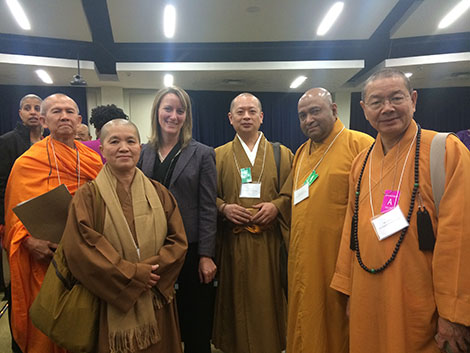
Mediation Perspectives is a periodic blog entry that’s provided by the CSS’ Mediation Support Team and occasional guest authors. Each entry is designed to highlight the utility of mediation approaches in dealing with violent political conflicts. To keep up to date with the Mediation Support Team, you can sign up to their newsletter here.
As part of the CSS Mediation Perspectives Blog Mini-Series on the use of religious resources in peace mediation (part one on criteria and part two on Christianity), I look at how, throughout the Buddhist world, peace practitioners have drawn on the religion’s ideas, stories, and practices in order to shape, legitimize, and motivate their efforts to resolve disputes and build peace more broadly. The 2500 year old tradition, born in India and now practiced throughout the world, is ripe with material to support such efforts. Indeed, any attempt to distill such a huge and diverse corpus into key points for the purpose of a blog is a challenge. After all, the Buddhist tradition lacks a core canon that’s considered authoritative for all Buddhists. Rather, thousands of Buddhist scriptures circulate in an ongoing conversation. A vast number of commentaries on these texts are also considered influential, including those written by the 5th century CE Buddhagosa. Moreover, chronicles such as the 6th century CE Sri Lankan Mahavamsa, stories surrounding key historical figures like the 3rd century BCE Emperor Asoka, the jataka tales that recount the Buddha’s myriad previous lives before his incarnation as the historical Buddha, and local stories and teachings that have been incorporated into the Buddhist imagination all constitute wells from which one can draw Buddhist teachings that might apply to mediation. Finally, different teachings, practices, and ideas resonate within different schools of Buddhism – from the Zen of Japan to the Vajrayana of Tibet to the Theravada Forest Tradition of Thailand.
